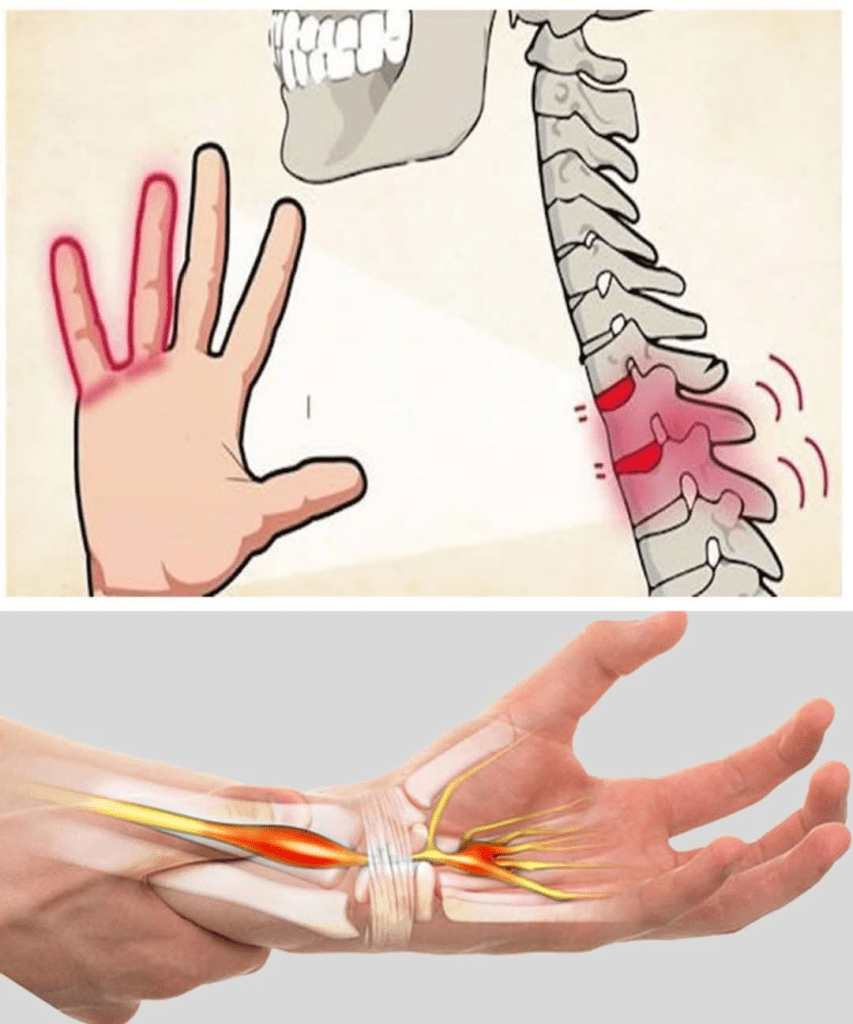
Have you ever woken up with numb hands and not known why? This phenomenon, although common, can be disconcerting and even annoying. If it’s happened to you, you’re not alone. Many people experience this numbness or tingling sensation in their hands, and sometimes their feet, without understanding the reasons behind it. In this article, we’ll explore the possible causes of this numbness and provide you with some home remedies that can help alleviate this problem. We also invite you to watch the following video for a deeper dive into the topic.
Why do hands and feet go numb?
Numbness and tingling in the extremities, medically known as paresthesia, can be caused by a variety of reasons. Some are simple and temporary, while others may indicate more serious conditions that require medical attention. These are some of the most common causes:
- Poor blood circulation : One of the most common reasons is a lack of adequate blood flow to the hands and feet. This can occur if you maintain an uncomfortable position for extended periods of time, such as sleeping on one arm or crossing your legs for hours.
- Nerve compression : Nerves running from the spine to the extremities can become compressed due to poor posture, injury, or conditions such as sciatica or carpal tunnel syndrome.
- Nutritional deficiencies : Lack of essential vitamins, such as B12, can affect nerve function and cause tingling sensations.
- Chronic diseases : Conditions such as diabetes, multiple sclerosis, or arthritis can cause nerve damage, leading to numbness and tingling.
- Stress and anxiety : Emotional stress can manifest itself physically, causing muscle tension and affecting circulation, resulting in numbness.
- Exposure to cold : Low temperatures can reduce blood flow to the extremities, causing that tingling sensation.
Home remedies to relieve numbness
If the numbness is occasional and not related to a serious medical condition, you can try these home remedies to relieve discomfort:
- Improve your posture : Avoid sleeping on your arms or keeping your legs crossed for long periods of time. Make sure you adopt positions that don’t compress your nerves.
- Exercise your limbs : Perform gentle movements with your hands and feet to improve circulation and reduce numbness.
- Apply heat : Use a hot compress or soak your hands and feet in warm water to stimulate blood flow.
- Massage : Gently massaging the affected areas can help relax muscles and improve circulation.
- Maintain a balanced diet : Make sure you consume enough vitamins and minerals, especially vitamin B12, magnesium and potassium, which are essential for nerve health.
- Reduce stress : Practice relaxation techniques such as yoga, meditation, or deep breathing to reduce muscle tension.
When to seek medical help
Although occasional numbness is usually not a cause for concern, it is important to see a doctor if:
- Numbness persists or worsens over time.
- It is accompanied by other symptoms such as muscle weakness, severe pain or difficulty moving the limbs.
- It occurs suddenly and without apparent cause.
These symptoms could indicate a more serious underlying condition that requires professional attention.
Conclusion
Numbness and tingling in the hands and feet can be annoying, but in many cases, they are the result of simple and easily correctable causes. By paying attention to your posture, diet, and stress levels, you can significantly reduce these discomforts. However, if symptoms persist or are accompanied by other worrying signs, don’t hesitate to seek medical help. Your body is sending you a message, and it’s important to listen.
Don’t forget to watch the following video for more detailed information on this topic. Take care of your health and pay attention to the signals your body is sending you!


